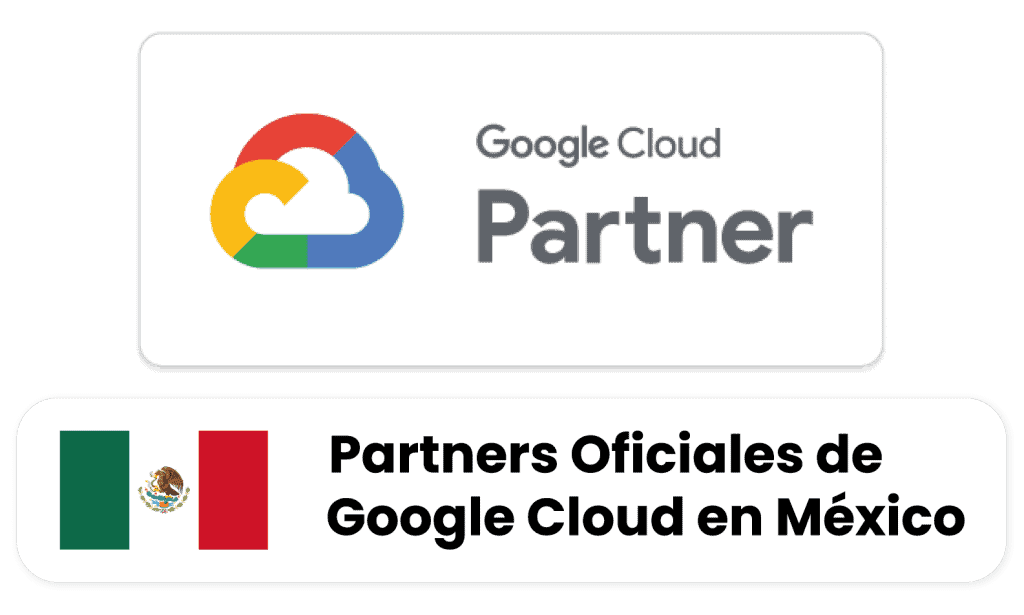
Migration to
Cloud
Migrate your on-premises/on-promise infrastructure to the public cloud
- Optimize your costs: Reduce your infrastructure costs and pay per use (pay as you go).
- Scale your company- Reduces long-term investments through flexible and scalable models.
- Reduce time and avoid human errors: increases the availability of your solutions, reduces human effort and the possibility of error.

What do you want to migrate?
Migrate your
cloud servers
Move your application servers to the public cloud. In this way, it is possible to prepare applications to achieve greater resistance and face future business challenges and ensure success.
- Optimize the use of resources, such as CPU or RAM
- Reduces the operational load of the technical teams
- Eliminate the service outages due to obsolescence of infrastructure
- Implement a flexible and scalable infrastructure
- Optimize your infrastructure costs
Rebuild
Rehost
Replatform
Refactor
Migrate your
cloud applications
Move an application from an environment to the Google Public Cloud. These migrations can be "as is?", which adds scalability and flexibility to operations. Also they transform? integrating cloud elements that increase efficiency and generate new functionalities.
- Reduces the infrastructure costs and save time and effort
- get higher scalability of the project
- Pay for what you consume
- Operate agilely and eliminate human errors
- Get high availability
Kubernetes, one step further
in application virtualization
Kubernetes is the next step to virtualization and is the infrastructure standard for applications and solutions.
Allows the automation, maintenance, portability and flexibility of the software executed on them.
- resilient structure
- Scalability without changing architecture
- Automation
- Working on an Infrastructure as Code (IaC) scheme
Store your information
in a safe way
Storage is one of the systems harder to scale and provision since it is constantly growing and usually oversize quite regularly.
The best way to maintain a healthy storage system is to use virtually infinite elements to fit to the needs of the organization in real time.
It can be used to store information accessible from anywhere in the world, rare, used by CDN or backups.
- It solves the storage problem definitively and transparently.
- Cost reduction.
- Elimination of Intermediaries.
- Reduction of operational tasks.
- Prevents ransomware attacks.
Manage your data like Google does
Data is the most valuable thing in organizations. They are what help make the right decisions and they are the ones who endorse the successes achieved.
Google has managed to transfer this importance to the cloud and proposes a innovative use of databases as a platform that allows you to grow infinitely while reducing maintenance effort to a minimum.
- Keep company data always available, secure and backed up.
- Take advantage of maximum availability for minimum effort.
- Automate processes
- Use Infrastructure as a Platform
- Secure your data with maintenance managed by Google through the highest standards on the market.
- Start the path towards Big Data.
- Make decisions based on Data Driven.
What is the migration process like?
Depending on the needs, several approaches can be taken to the definitive database migration strategy.
Incremental Migration
It allows databases to be updated gradually until an exact clone of the original information is reached.
High Availability Migration
It allows you to generate a real-time clone of the databases and derive workflows dynamically without stopping the service.
How are GCP, AWS, and Azure services different?
| Main differences | GCP | AWS | BLUE |
|---|---|---|---|
| Release date | 2015 | 2018 | 2018 |
| Billing Type | Direct and transparent; through partners or directly with Google | Full visibility in direct contracting, opaque through a partner | Full visibility in direct contracting, opaque through a partner |
| Private network | Google has the largest fiber optic network interconnecting all regions of its cloud | Mainly uses public networks | Mainly uses public networks |
| Security | It maintains a shared responsibility model but establishes immovable minimums (information encrypted at all times) | Maintains a shared responsibility model without restrictions, which can generate risks under certain conditions | Maintains a shared responsibility model without restrictions, which can generate risks under certain conditions |
| Learning curve | Fast (lots of documentation and easy-to-adopt services) | Medium (lots of documentation, larger user community) | Medium (Microsoft practices persist in the market, well-known business model) |
uCloud Support
Why with a Google partner?
Service 24x7 Google Cloud Platform Support consists of a team of experts in the management and operation of the cloud Google Cloud. To be more efficient, it has a tracking system incidents built from a ticket system that allow events to be recorded reactive.
- Reduction of downtime in services.
- Greater focus of the technical teams on improving solutions and adding value to the company.
- Priority support.
- Compliance with the SLA (service level agreement) and obtaining a professional incident handling system.
- Possibility of outsourcing a stable infrastructure operation to free up the work team.
- Reduction of support operating costs.

Do you want us to advise you on Google Cloud Platform?
Leave us your information here and we will contact you
